(A) Background
The Research Center for Islamic Legislation and Ethics (CILE) is an academic center based in Doha with international orientation and an ambitious research agenda.
- Reconciling spirituality and science, legislation and ethics, laws and objectives of Shariah and emphasizing their complimentary relationship so as to revive the role of Islamic ethics in contemporary knowledge and practice.
- A broad and positive view of the Islamic sources of legislation and ethics, recognising the necessity to enrich our understanding of them with the fruits of human knowledge and values that are common to all people.
- A practical spirit that transforms the science of Maqasid al-Shariah (higher objectives of Islam) from theory to practice in all spheres of life, contributing to the establishment of an Islamic legislative and ethical framework.
- A trans-disciplinary assessment of contemporary legal and ethical challenges that considers the complexities of reality with the diversity of visions and means to address them.
- A holistic synthesizing approach whereby Scholars of Text from diverse Islamic traditions and Scholars of Context from various natural and human sciences disciplines engage in an intellectual exercise that infuses the insights from one field to another.
- Critical self-assessment and reasoning that goes beyond short-term crisis management in favour of creative, long-term transformative solutions to world problems. It is only with this approach that the interests of people everywhere would be better served, to fulfil the vision of Islam, its higher ethical objectives and its liberating mission.
(B) Organizing International Seminars
Organizing international seminars engaging specialists in Islamic Studies (“Scholars of Text”) and scholars in the fields of applied ethics (“Scholars of Context”) as one of the key activities that help achieve CILE’s goal of leading academic research in these fields. CILE has currently permanent faculty members who are responsible for research activities, including organizing seminars, in four of the above mentioned fields, namely:
- 1. Medicine & Bioethics
- 2. Migration & Human Rights
- 3. Politics
- 4. Methodology of Islamic Ethics
CILE offers generous scholarships for academics and researchers worldwide to organize international seminars on topics related to the interplay of Islamic ethics and aforementioned eight fields. The applicant is free to choose the specific theme of the prospective seminar. The potential seminar organizer should prepare a full proposal which will be reviewed by CILE.
(C) Qualifications & Tasks
The ideal candidate for this type of scholarship is a highly qualified academic scholar who has:
- A strong publication record in one of the fields of Islamic studies that indicates interdisciplinary skills and an academic career demonstrating an ability to lead group-oriented research and organization of such seminars.
- Multilingual excellence: Participants in CILE seminars often include those who are proficient in Arabic or English. In order to be able to manage the research-related activities of the seminar, the prospective candidate should be proficient in -at least- both Arabic and English.
The tasks of the selected candidate will include:
- Drafting the Background Paper and Call for Papers for the prospective seminar. The background paper should be prepared in both English and Arabic. For an example of a Background Paper which we used for one of the CILE previous seminars, for the English version please visit this link and for the Arabic version this link .
- Leading the Call-for-Papers process and chairing the review committee which will be responsible for selecting the papers to be presented in the seminar. An example of the call for papers in English is available here and the Arabic version is available here.
- Moderating the three-day seminar which will be held in Doha. The exact dates of the seminar will be determined in agreement between CILE and the selected candidate.
- Preparing and implementing a publication plan for the proceedings of the seminar. This will be done in coordination with the Managing Editor of the CILE Journal of Islamic Ethics.
- Writing a paper to be included in the publication resulting from the seminar. The paper should be related to the main theme of the seminar and should be an original work which was not published before.
- Writing a scholarly report on the seminar afterwards in both English and Arabic. An example of English and Arabic reports is available here and here
Based on previous experience, it is expected that these tasks can be fulfilled within one calendar year. During this period, the candidate can do these tasks remotely from outside Qatar and thus does not necessarily need to give up his/her job during this one-year scholarship.
(D) Benefits
CILE will offer the following benefits and facilities for the selected candidate:
- Covering the logistic costs related to the organization of the seminar including travel and accommodation costs of the successful candidate and up to the maximum of twelve participants in the seminar.
- Covering of the costs of making the publication available via open access.
- An additional stipend will be paid to thesuccessful candidate upon completion of the above mentioned tasks.
(E) How to apply?
Please send the following documents/information to submit@cilecenter.org with "CILE Scholarships for Organizing International Seminars" as subject of the email.
- A short biography and updated CV
- A proposal of the Background Paper on the main theme of the seminar that you plan to organize.
Deadline:
Submissions received before 1 June 2017 will be given preference. However, we will continue considering applications until the scholarships are assigned to the successful candidates.
